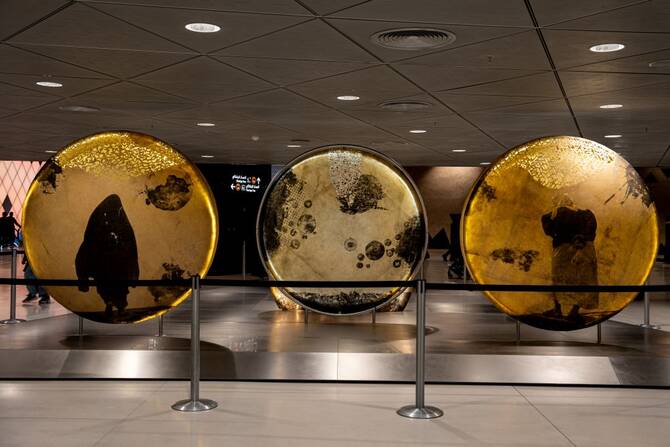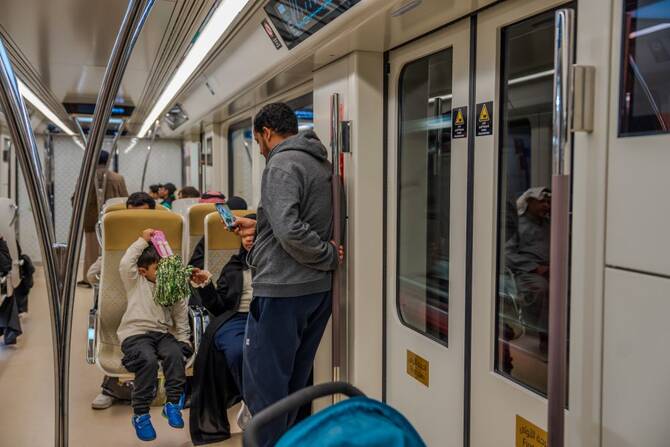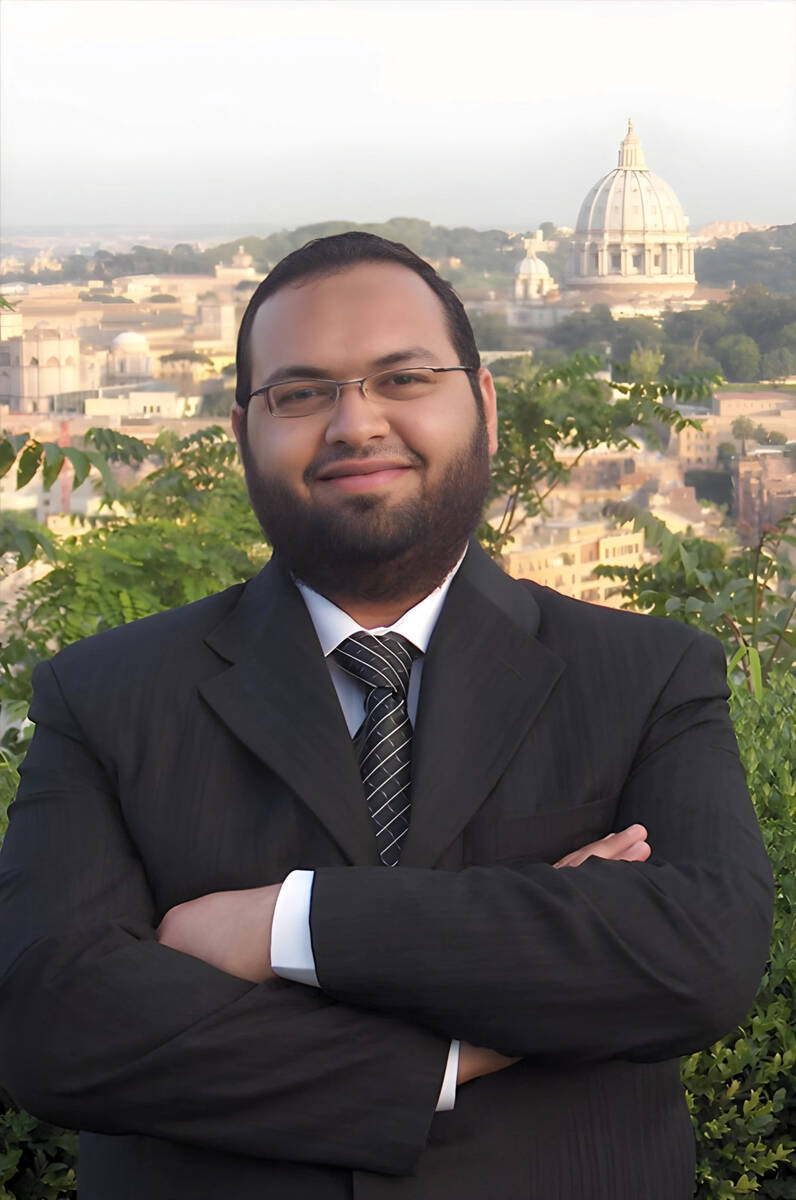RIYADH: Riyadh Metro is rapidly reshaping the city’s public transportation landscape, providing residents and visitors with an efficient and cost-effective alternative to private cars and ride-hailing services.
As the metro expands, its social and economic impacts are becoming more evident, from easing traffic congestion to influencing real estate trends.
The newly opened Qasr Al-Hokm Station is a key addition to the metro network, strategically located in Riyadh’s historic district. It provides easy access to government buildings, cultural landmarks, and bustling markets, making it a crucial hub for commuters and visitors alike.
To understand the metro’s impact firsthand, several passengers shared their experiences at Qasr Al-Hokm Station, highlighting both the benefits and challenges of using Riyadh’s latest public transport system.
For many residents, the affordability and ease of use make the metro an attractive alternative to private transportation. Menna Ali, a frequent rider, praised its cost-effectiveness: “It’s much easier to use, much cheaper than other transportation options. And you don’t have to stick in the traffic, and I’m happy with it.”
The metro is also helping to cut travel times for many commuters. Abdullah Al-Ghamdi, who regularly visits the area, noted how much simpler his commute has become. “I frequently visit this area, and I used to struggle to get here. Now, it takes me about 20 minutes from my residence to reach this place. Honestly, it’s excellent — saving time, reducing stress, and avoiding traffic. It’s truly great.”
However, while the metro is convenient for some, others note that it can be time-consuming, particularly when multiple transfers are required. Haifa Al-Marhum highlighted this challenge: “Honestly, it takes time — I have to go from one station to another and so on. So in terms of time, no, it does take a while.
“In terms of saving money, it definitely helps — whether for transportation, fuel, or for those who have a car or don’t. It’s a real money-saver, and on top of that, it helps avoid traffic,” she added.
While the metro provides financial relief for many commuters, its speed remains a concern. During peak hours, the overall travel time can be comparable to driving in heavy traffic, raising questions about whether it truly offers a faster alternative. Although it eliminates some of the stress of car travel and reduces fuel costs, the metro’s slower pace may not be ideal for those in a hurry.
Passengers at Qasr Al-Hokm Station also praised the metro’s accessibility, well-placed signage, and helpful staff. Fahad Hussain noted how easy it is to navigate the system. “The staff here make everything easy in terms of assistance and explaining locations. Everything is simple, and we haven’t faced any difficulties so far. Plus, the signs are available everywhere.”
The metro’s modern design and efficiency have also impressed international visitors. Georgii Korshunov, a traveler from Russia, described the system as futuristic, comparing it to Moscow’s extensive metro network. Meanwhile, Kate Pirogova, highlighted its user-friendly layout. “I like Riyadh Metro, it’s very modern, very simple to navigate.”
To further encourage public transport adoption, authorities have introduced a free Uber ride initiative, allowing passengers to activate a voucher through the Uber app for complimentary rides within 3 km of any metro station. This initiative aims to address the “last-mile problem” by providing seamless connections between metro stations and final destinations, making public transport a more viable option for daily commutes.
The metro’s influence extends beyond daily commutes; it is also shaping real estate trends in Riyadh. Landlords and real estate agents are increasingly promoting properties by emphasizing their proximity to metro stations, signaling a growing demand for metro-accessible housing.
This trend is common in global metropolitan areas, where transit-oriented developments often lead to increased property values and higher rental demand. As Riyadh continues to expand its metro network, neighborhoods near stations may see a surge in desirability and investment potential.
The Riyadh Metro represents a major shift in the city’s transportation culture, gradually reducing reliance on private vehicles and contributing to Saudi Arabia’s Vision 2030 goals for sustainable urban mobility. By offering an affordable, efficient, and environmentally friendly alternative, the metro is paving the way for a more connected and accessible city.
However, the metro still faces challenges in terms of speed and efficiency, particularly for those who are accustomed to faster car travel, even in traffic. While its affordability and reliability are strong advantages, future enhancements — such as faster trains, express routes, or reduced transfer times — may be key to convincing more residents to make the permanent switch to public transport.






































